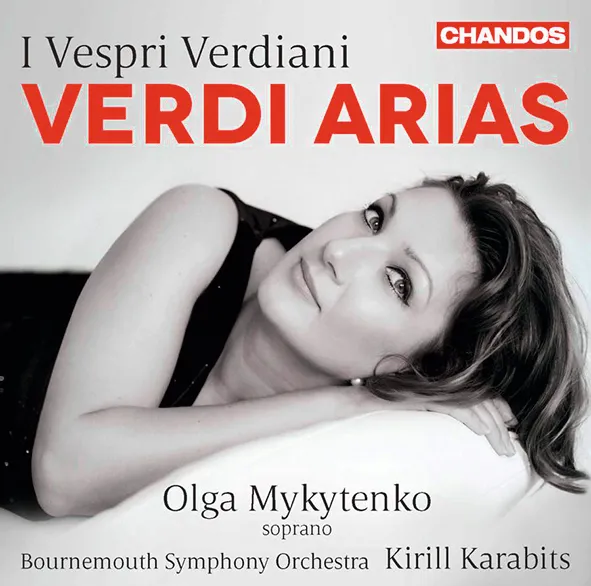
Verdi I Vespri Verdiani – Arias from I Masnadieri, Un Ballo in Maschera, Il Trovatore, I Vespri Siciliani, Il Corsaro, Attila, Ernani, Macbeth, Luisa Miller and La Traviata Olga Mykytenko (soprano); Bournemouth Symphony Orchestra/Kirill Karabits Chandos CHAN 20144 74.04 mins
Verdi’s soprano arias are some of the most demanding in the repertoire, requiring a strong instrument with an impregnable technique. Here, their Ukrainian exponent only intermittently achieves the level required.
Olga Mykytenko brings an emotional commitment to the music, but rather less so to the text, which is sketchy. Her soprano is at times edgy in quality, especially higher up, and she’s not always in tune. After a substantial period at the National Opera of Ukraine (1995-2003) and some important competition wins (1997-2003), Mykytenko has gone on to enjoy a busy career with a run of Gianni Schicchi at the New York Met in 2007 perhaps representing a peak: arguably, indeed, Puccini – whose works still seem to form the basis of her repertoire – might have been a better option for this disc.
Here the size of voice is on the small side for some of the bigger roles: Amelia in Ballo and Leonora in Trovatore among them. In Lady Macbeth’s first aria the whispered letter reading is curiously ineffective, after which Mykytenko hurls herself at the recitative with mixed results.
There are some decent accounts of tricky arias – the slow aria from Les Vêpres siciliennes (she sings both of Hélène’s solos in the standard Italian translation, incidentally), but equally there are moments of insecurity and inaccuracy, particularly in the top register as well as in cadenzas.
The Bournemouth Symphony Orchestra gives a good account of itself, though the accompaniments could do with more dramatic thrust. The sound is solid but lacking in clarity.
Find out more about Verdi and his work here
George Hall